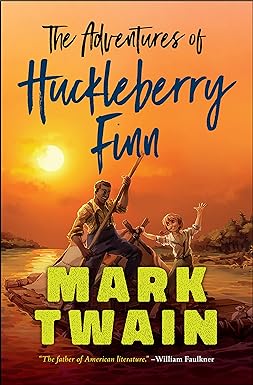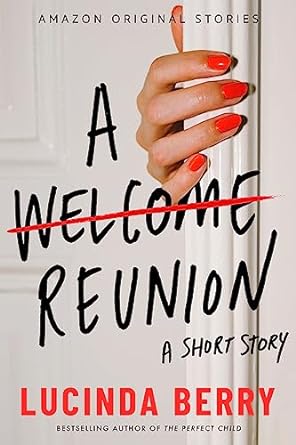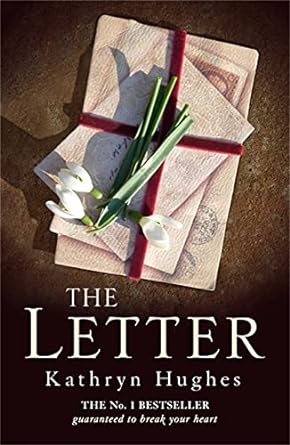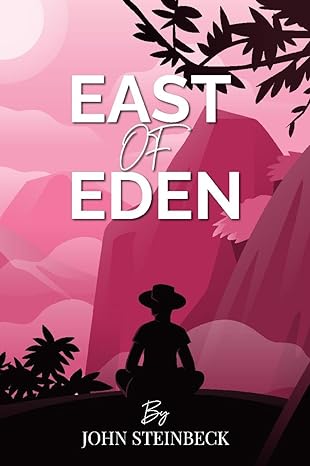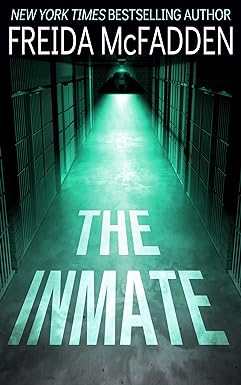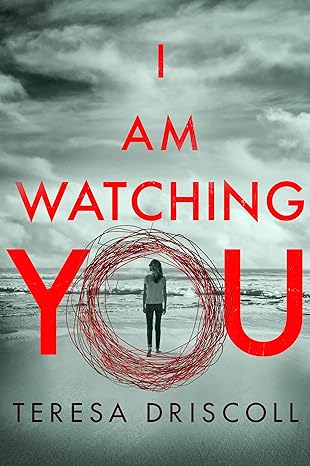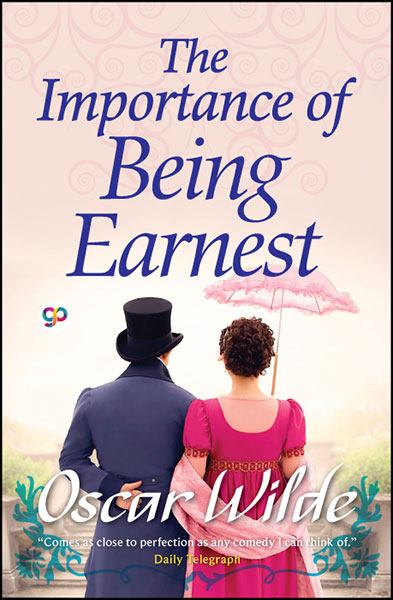
The Importance of Being Earnest
The Importance of Being Earnest' is a comedy in three acts, written by Oscar Wilde and first published in 1895. A great classic for every person interested in Oscar Wilde and his legacy.
Wilde wrote it quickly, but then extensively revised and shortened this work to create a gem. Despite its apparent humour, the play addresses the state of Victorian society; indeed, it is subtitled 'A Trivial Comedy for Serious People.'
BEST DEALS
About the Author
Oscar Wilde was born in Dublin on 16 October 1854 to Sir William Wilde and his wife Jane. Oscar's mother, Lady Jane Francesca Wilde, was a successful poet and journalist. Oscar's father, Sir William Wilde, was a leading ear and eye surgeon, a renowned philanthropist and gifted writer, who wrote books on archaeology and folklore. Oscar had an elder brother, Willie, and a younger sister, Isola Francesca, who died at the early age of 10. He was educated at Portora Royal School, Trinity College, Dublin, and Magdalen College, Oxford. While at Oxford, he became involved in the aesthetic movement and became an advocate for 'Art for Art's Sake'. Whilst at Magdalen, he won the 1878 Newdigate Prize for his poem Ravenna. After he graduated, he moved to Chelsea in London (1879) to establish a literary career.
In 1881, he published his first collection of poetry—Poems that received mixed reviews by critics. He worked as an art reviewer (1881), lectured in the United States and Canada (1882), and lived in Paris (1883). He also lectured in Britain and Ireland (1883 - 1884). On May 29, 1884, Oscar married Constance Lloyd (died 1898), daughter of wealthy Queen's Counsel Horace Lloyd. They had two sons, Cyril (1885) and Vyvyan (1886). To support his family, Oscar accepted a job as the editor of Woman's World magazine, where he worked from 1887-1889. In 1888, he published 'The Happy Prince and Other Tales', fairy-stories written for his two sons. His first and only novel, 'The Picture of Dorian Gray', was published in 1891 and received quite a negative response. This had much to do with the novel's homoerotic overtones, which caused something of a sensation amongst Victorian critics.
In 1891, Wilde began an affair with Lord Alfred Douglas, nicknamed 'Bosie', who became both the love of his life and his downfall. Wilde's marriage ended in 1893. Wilde's greatest talent was for writing plays. His first successful play, Lady Windermere's Fan, opened in February 1892. He produced a string of extremely popular comedies including 'A Woman of No Importance' (1893), 'An Ideal Husband' (1895), and 'The Importance of Being Earnest' (1895). These plays were all highly acclaimed and firmly established Oscar as a playwright. He spent the rest of his life wandering Europe, staying with friends and living in cheap hotels. He died of cerebral meningitis on November 30, 1900, penniless, in a cheap Paris hotel.
This collection features the following works:
Novel : The Picture of Dorian Gray Short Stories : 1. The Birthday of the Infanta 2. The Canterville Ghost 3. The Devoted Friend 4. The Fisherman and His Soul 5. The Happy Prince 6. Lord Arthur Savile’s Crime 7. The Model Millionaire 8. The Nightingale and the Rose 9. The Portrait of Mr. W. H. 10. The Remarkable Rocket 11. The Selfish Giant 12. The Sphinx without a Secret 13. The Star-Child 14. The Young King
Poetry : 1. The Ballad of Reading Gaol 2. Collection of Poems 3. Miscellaneous Poems 4. Poems in Prose 5. Ravenna 6. The Sphinx
Essays : 1. Art and the Handicraftsman 2. Children in Prison and Other Cruelties of Prison Life 3. The Critic as Artist 4. De Profundis 5. The Decay of Lying 6. The English Renaissance of Art 7. House Decoration 8. Impressions of America 9. Lecture to Art Students 10. London Models 11. Miscellaneous Aphorisms 12. Pen, Pencil and Poison 13. The Rise of Historical Criticism 14. Selected Prose 15. Shorter Prose Pieces 16. The Soul of Man 17. The Truth of Masks
Plays : 1. A Florentine Tragedy — A Fragment 2. A Woman of No Importance 3. An Ideal Husband 4. The Duchess of Padua 5. For Love of the King 6. The Importance of Being Earnest 7. La Sainte Courtisane or, the Woman Covered with Jewels 8. Lady Windermere’s Fan 9. Salomé 10. Vera, or the Nihilists
Non-Fiction : A Critic in Pall Mall
Read Sample
The Persons in the Play
John Worthing, J.P.
Algernon Moncrieff
Rev. Canon Chasuble, D.D.
Merriman, Butler
Lane, Manservant
Lady Bracknell
Hon. Gwendolen Fairfax
Cecily Cardew
Miss Prism, Governess
ACT 1
SCENE. Morning-room in Algernon’s flat in Half-Moon Street. The room is luxuriously and artistically furnished. The sound of a piano is heard in the adjoining room.
LANE is arranging afternoon tea on the table, and after the music has ceased, ALGERNON enters.
ALGERNON : Did you hear what I was playing, Lane?
LANE : I didn’t think it polite to listen, sir.
ALGERNON : I’m sorry for that, for your sake. I don’t play accurately—anyone can play accurately—but I play with wonderful expression. As far as the piano is concerned, sentiment is my forte. I keep science for Life.
LANE : Yes, sir.
ALGERNON : And, speaking of the science of Life, have you got the cucumber sandwiches cut for Lady Bracknell?
LANE : Yes, sir. [Hands them on a salver.]
ALGERNON : [Inspects them, takes two, and sits down on the sofa.] Oh!… by the way, Lane, I see from your book that on Thursday night, when Lord Shoreman and Mr. Worthing were dining with me, eight bottles of champagne are entered as having been consumed.
LANE : Yes, sir; eight bottles and a pint.
ALGERNON : Why is it that at a bachelor’s establishment the servants invariably drink the champagne? I ask merely for information.
LANE : I attribute it to the superior quality of the wine, sir. I have often observed that in married households the champagne is rarely of a first-rate brand.
ALGERNON : Good heavens! Is marriage so demoralizing as that?
LANE : I believe it is a very pleasant state, sir. I have had very little experience of it myself up to the present. I have only been married once. That was in consequence of a misunderstanding between myself and a young person.
ALGERNON : [Languidly] I don’t know that I am much interested in your family life, Lane.
LANE : No, sir; it is not a very interesting subject. I never think of it myself.
ALGERNON : Very natural, I am sure. That will do, Lane, thank you.
LANE : Thank you, sir. [Lane goes out.]
ALGERNON : Lane’s views on marriage seem somewhat lax. Really, if the lower orders don’t set us a good example, what on earth is the use of them? They seem, as a class, to have absolutely no sense of moral responsibility.
Enter LANE.
LANE : Mr. Ernest Worthing.
Enter JACK.
[Lane goes out.
ALGERNON : How are you, my dear Ernest? What brings you up to town?
JACK : Oh, pleasure, pleasure! What else should bring one anywhere? Eating as usual, I see, Algy!
ALGERNON : [Stiffly] I believe it is customary in good society to take some slight refreshment at five o’clock. Where have you been since last Thursday?
JACK : [Sitting down on the sofa.] In the country.
ALGERNON : What on earth do you do there?
JACK : [Pulling off his gloves.] When one is in town one amuses oneself. When one is in the country one amuses other people. It is excessively boring.
ALGERNON : And who are the people you amuse?
JACK : [Airily] Oh, neighbours, neighbours.
ALGERNON : Got nice neighbours in your part of Shropshire?
JACK : Perfectly horrid! Never speak to one of them.
ALGERNON : How immensely you must amuse them! [Goes over and takes sandwich.] By the way, Shropshire is your county, is it not?
JACK : Eh? Shropshire? Yes, of course. Hallo! Why all these cups? Why cucumber sandwiches? Why such reckless extravagance in one so young? Who is coming to tea?
ALGERNON : Oh! merely Aunt Augusta and Gwendolen.
JACK : How perfectly delightful!
ALGERNON : Yes, that is all very well; but I am afraid Aunt Augusta won’t quite approve of your being here.
JACK : May I ask why?
ALGERNON : My dear fellow, the way you flirt with Gwendolen is perfectly disgraceful. It is almost as bad as the way Gwendolen flirts with you.
JACK : I am in love with Gwendolen. I have come up to town expressly to propose to her.
ALGERNON : I thought you had come up for pleasure?... I call that business.
JACK : How utterly unromantic you are!
ALGERNON : I really don’t see anything romantic in proposing. It is very romantic to be in love. But there is nothing romantic about a definite proposal. Why, one may be accepted. One usually is, I believe. Then the excitement is all over. The very essence of romance is uncertainty. If ever I get married, I’ll certainly try to forget the fact.
JACK : I have no doubt about that, dear Algy. The Divorce Court was specially invented for people whose memories are so curiously constituted.
ALGERNON : Oh! There is no use speculating on that subject. Divorces are made in Heaven—[Jack puts out his hand to take a sandwich. Algernon at once interferes.] Please don’t touch the cucumber sandwiches. They are ordered specially for Aunt Augusta. [Takes one and eats it.]
JACK : Well, you have been eating them all the time.
ALGERNON : That is quite a different matter. She is my aunt. [Takes place from below.] Have some bread and butter. The bread and butter is for Gwendolen. Gwendolen is devoted to bread and butter.
JACK : [Advancing to table and helping himself.] And very good bread and butter it is too.
ALGERNON : Well, my dear fellow, you need not eat as if you were going to eat it all. You behave as if you were married to her already. You are not married to her already, and I don’t think you ever will be.
JACK : Why on earth do you say that?
ALGERNON : Well, in the first place girls never marry the men they flirt with. Girls don’t think it right.
JACK : Oh, that is nonsense!
ALGERNON : It isn’t. It is a great truth. It accounts for the extraordinary number of bachelors that one sees all over the place. In the second place, I don’t give my consent.
JACK : Your consent!
ALGERNON : My dear fellow, Gwendolen is my first cousin. And before I allow you to marry her, you will have to clear up the whole question of Cecily: [Rings bell.]
JACK : Cecily! What on earth do you mean? What do you mean, Algy, by Cecily! I don’t know any one of the name of Cecily.
Enter LANE.
ALGERNON : Bring me that cigarette case Mr. Worthing left in the smoking-room the last time he dined here.
LANE : Yes, sir. [Lane goes out.]
JACK : Do you mean to say you have had my cigarette case all this time? I wish to goodness you had let me know. I have been writing frantic letters to Scotland Yard about it. I was very nearly offering a large reward.
ALGERNON : Well, I wish you would offer one. I happen to be more than usually hard up.
JACK : There is no good offering a large reward now that the thing is found.
Enter LANE with the cigarette case on a salver. ALGERNON takes it at once. LANE goes out.
ALGERNON : I think that is rather mean of you, Ernest, I must say. [Opens case and examines it.] However, it makes no matter, for, now that I look at the inscription inside, I find that the thing isn’t yours after all.
JACK : Of course it’s mine. [Moving to him.] You have seen me with it a hundred times, and you have no right whatsoever to read what is written inside. It is a very ungentlemanly thing to read a private cigarette case.
ALGERNON : Oh! It is absurd to have a hard and fast rule about what one should read and what one shouldn’t. More than half of modern culture depends on what one shouldn’t read.
JACK : I am quite aware of the fact, and I don’t propose to discuss modern culture. It isn’t the sort of thing one should talk of in private. I simply want my cigarette case back.
ALGERNON : Yes; but this isn’t your cigarette case. This cigarette case is a present from some one of the name of Cecily, and you said you didn’t know any one of that name.
JACK : Well, if you want to know, Cecily happens to be my aunt.
ALGERNON : Your aunt!
JACK : Yes. Charming old lady she is, too. Lives at Tunb ridge Wells. Just give it back to me, Algy.
ALGERNON : [Retreating to back of sofa.] But why does she call herself little Cecily if she is your aunt and lives at Tunb ridge Wells? [Reading] ‘From little Cecily with her fondest love.’
JACK : [Moving to sofa and kneeling upon it.] My dear fellow, what on earth is there in that? Some aunts are tall, some aunts are not tall. That is a matter that surely an aunt may be allowed to decide for herself. You seem to think that every aunt should be exactly like your aunt! That is absurd! For Heaven’s sake give me back my cigarette case. [Follows Algernon round the room.]
ALGERNON : Yes. But why does your aunt call you her uncle? ‘From little Cecily, with her fondest love to her dear Uncle Jack.’ There is no objection, I admit, to an aunt being a small aunt, but why an aunt, no matter what her size may be, should call her own nephew her uncle, I can’t quite make out. Besides, your name isn’t Jack at all; it is Ernest.
JACK : It isn’t Ernest; it’s Jack.
ALGERNON : You have always told me it was Ernest. I have introduced you to everyone as Ernest. You answer to the name of Ernest. You look as if your name was Ernest. You are the most earnest-looking person I ever saw in my life. It is perfectly absurd your saying that your name isn’t Ernest. It’s on your cards. Here is one of them. [Taking it from case.] ‘Mr. Ernest Worthing, B. 4, The Albany.’ I’ll keep this as a proof that your name is Ernest if ever you attempt to deny it to me, or to Gwendolen, or to anyone else. [Puts the card in his pocket.]
JACK : Well, my name is Ernest in town and Jack in the country, and the cigarette case was given to me in the country.
ALGERNON : Yes, but that does not account for the fact that your small Aunt Cecily, who lives at Tunb ridge Wells, calls you her dear uncle. Come, old boy, you had much better have the thing out at once.
JACK : My dear Algy, you talk exactly as if you were a dentist. It is very vulgar to talk like a dentist when one isn’t a dentist. It produces a false impression.
ALGERNON : Well, that is exactly what dentists always do. Now, go on! Tell me the whole thing. I may mention that I have always suspected you of being a confirmed and secret Bunburyist; and I am quite sure of it now.
JACK : Bunburyist? What on earth do you mean by a Bunburyist?
ALGERNON : I’ll reveal to you the meaning of that incomparable expression as soon as you are kind enough to inform me why you are Ernest in town and Jack in the country.
JACK : Well, produce my cigarette case first.
ALGERNON : Here it is. [Hands cigarette case.] Now produce your explanation, and pray make it improbable. [Sits on sofa.]
JACK : My dear fellow, there is nothing improbable about my explanation at all. In fact it’s perfectly ordinary. Old Mr. Thomas Cardew, who adopted me when I was a little boy, made me in his will guardian to his grand-daughter, Miss Cecily Cardew. Cecily, who addresses me as her uncle from motives of respect that you could not possibly appreciate, lives at my place in the country under the charge of her admirable governess, Miss Prism.
ALGERNON : Where is that place in the country, by the way?
JACK : That is nothing to you, dear boy. You are not going to be invited… I may tell you candidly that the place is not in Shropshire.
ALGERNON : I suspected that, my dear fellow! I have Bunburyed all over Shropshire on two separate occasions. Now, go on. Why are you Ernest in town and Jack in the country?
JACK : My dear Algy, I don’t know whether you will be able to understand my real motives. You are hardly serious enough. When one is placed in the position of guardian, one has to adopt a very high moral tone on all subjects. It’s one’s duty to do so. And as a high moral tone can hardly be said to conduce very much to either one’s health or one’s happiness, in order to get up to town I have always pretended to have a younger brother of the name of Ernest, who lives in the Albany, and gets into the most dreadful scrapes. That, my dear Algy, is the whole truth pure and simple.
ALGERNON : The truth is rarely pure and never simple. Modern life would be very tedious if it were either, and modern literature a complete impossibility!
JACK : That wouldn’t be at all a bad thing.
ALGERNON : Literary criticism is not your forte, my dear fellow. Don’t try it. You should leave that to people who haven’t been at a University. They do it so well in the daily papers. What you really are is a Bunburyist. I was quite right in saying you were a Bunburyist. You are one of the most advanced Bunburyists I know.
JACK : What on earth do you mean?
ALGERNON : You have invented a very useful younger brother called Ernest, in order that you may be able to come up to town as often as you like. I have invented an invaluable permanent invalid called Bunbury, in order that I may be able to go down into the country whenever I choose. Bunbury is perfectly invaluable. If it wasn’t for Bunbury’s extraordinary bad health, for instance, I wouldn’t be able to dine with you at Willis’s to-night, for I have been really engaged to Aunt Augusta for more than a week.
JACK : I haven’t asked you to dine with me anywhere to-night.
ALGERNON : I know. You are absurdly careless about sending out invitations. It is very foolish of you. Nothing annoys people so much as not receiving invitations.
JACK : You had much better dine with your Aunt Augusta.
ALGERNON : I haven’t the smallest intention of doing anything of the kind. To begin with, I dined there on Monday, and once a week is quite enough to dine with one’s own relations. In the second place, whenever I do dine there I am always treated as a member of the family, and sent down with either no woman at all, or two. In the third place, I know perfectly well whom she will place me next to, to-night. She will place me next Mary Farquhar, who always flirts with her own husband across the dinner-table. That is not very pleasant. Indeed, it is not even decent… and that sort of thing is enormously on the increase. The amount of women in London who flirt with their own husbands is perfectly scandalous. It looks so bad. It is simply washing one’s clean linen in public. Besides, now that I know you to be a confirmed Bunburyist I naturally want to talk to you about Bunburying. I want to tell you the rules.
JACK : I’m not a Bunburyist at all. If Gwendolen accepts me, I am going to kill my brother, indeed I think I’ll kill him in any case. Cecily is a little too much interested in him. It is rather a bore. So I am going to get rid of Ernest. And I strongly advise you to do the same with Mr.… with your invalid friend who has the absurd name.
ALGERNON : Nothing will induce me to part with Bunbury, and if you ever get married, which seems to me extremely problematic, you will be very glad to know Bunbury. A man who marries without knowing Bunbury has a very tedious time of it.
JACK : That is nonsense. If I marry a charming girl like Gwendolen, and she is the only girl I ever saw in my life that I would marry, I certainly won’t want to know Bunbury.
ALGERNON : Then your wife will. You don’t seem to realize, that in married life three is company and two is none.
JACK : [Sententiously] That, my dear young friend, is the theory that the corrupt French Drama has been propounding for the last fifty years.
ALGERNON : Yes; and that the happy English home has proved in half the time.
JACK : For heaven’s sake, don’t try to be cynical. It’s perfectly easy to be cynical.
ALGERNON : My dear fellow, it isn’t easy to be anything nowadays. There’s such a lot of beastly competition about. [The sound of an electric bell is heard.] Ah! That must be Aunt Augusta. Only relatives, or creditors, ever ring in that Wagnerian manner. Now, if I get her out of the way for ten minutes, so that you can have an opportunity for proposing to Gwendolen, may I dine with you to-night at Willis’s?
JACK : I suppose so, if you want to.
ALGERNON : Yes, but you must be serious about it. I hate people who are not serious about meals. It is so shallow of them.
Enter LANE.
LANE : Lady Bracknell and Miss Fairfax.
ALGERNON goes forward to meet them. Enter LADY BRACKNELL and GWENDOLEN.
LADY BRACKNELL : Good afternoon, dear Algernon, I hope you are behaving very well.
ALGERNON : I’m feeling very well, Aunt Augusta.
LADY BRACKNELL : That’s not quite the same thing. In fact the two things rarely go together. [Sees Jack and bows to him with icy coldness.]
ALGERNON : [To Gwendolen.] Dear me, you are smart!
GWENDOLEN : I am always smart! Am I not, Mr. Worthing?
JACK : You’re quite perfect, Miss Fairfax.
GWENDOLEN : Oh! I hope I am not that. It would leave no room for developments, and I intend to develop in many directions. [Gwendolen and Jack sit down together in the corner.]
LADY BRACKNELL : I’m sorry if we are a little late, Algernon, but I was obliged to call on dear Lady Harbury. I hadn’t been there since her poor husband’s death. I never saw a woman so altered; she looks quite twenty years younger. And now I’ll have a cup of tea, and one of those nice cucumber sandwiches you promised me.
ALGERNON : Certainly, Aunt Augusta. [Goes over to tea-table.]
LADY BRACKNELL : Won’t you come and sit here, Gwendolen?
GWENDOLEN : Thanks, mamma, I’m quite comfortable where I am.
ALGERNON : [Picking up empty plate in horror.] Good heavens! Lane! Why are there no cucumber sandwiches? I ordered them specially.
LANE : [Gravely] There were no cucumbers in the market this morning, sir. I went down twice.
ALGERNON : No cucumbers!
LANE : No, sir. Not even for ready money.
ALGERNON : That will do, Lane, thank you.
LANE : Thank you, sir. [Goes out.]
ALGERNON : I am greatly distressed, Aunt Augusta, about there being no cucumbers, not even for ready money.
LADY BRACKNELL : It really makes no matter, Algernon. I had some crumpets with Lady Harbury, who seems to me to be living entirely for pleasure now.
ALGERNON : I hear her hair has turned quite gold from grief.
LADY BRACKNELL : It certainly has changed its colour. From what cause I, of course, cannot say. [Algernon crosses and hands tea.] Thank you. I’ve quite a treat for you to-night, Algernon. I am going to send you down with Mary Farquhar. She is such a nice woman, and so attentive to her husband. It’s delightful to watch them.
ALGERNON : I am afraid, Aunt Augusta, I shall have to give up the pleasure of dining with you to-night after all.
LADY BRACKNELL : [Frowning] I hope not, Algernon. It would put my table completely out. Your uncle would have to dine upstairs. Fortunately he is accustomed to that.
ALGERNON : It is a great bore, and, I need hardly say, a terrible disappointment to me, but the fact is I have just had a telegram to say that my poor friend Bunbury is very ill again. [Exchanges glances with Jack.] They seem to think I should be with him.
LADY BRACKNELL : It is very strange. This Mr. Bunbury seems to suffer from curiously bad health.
ALGERNON : Yes; poor Bunbury is a dreadful invalid.
LADY BRACKNELL : Well, I must say, Algernon, that I think it is high time that Mr. Bunbury made up his mind whether he was going to live or to die. This shilly-shallying with the question is absurd. Nor do I in any way approve of the modern sympathy with invalids. I consider it morbid. Illness of any kind is hardly a thing to be encouraged in others. Health is the primary duty of life. I am always telling that to your poor uncle, but he never seems to take much notice… as far as any improvement in his ailment goes. I should be much obliged if you would ask Mr. Bunbury, from me, to be kind enough not to have a relapse on Saturday, for I rely on you to arrange my music for me. It is my last reception, and one wants something that will encourage conversation, particularly at the end of the season when everyone has practically said whatever they had to say, which, in most cases, was probably not much.
ALGERNON : I’ll speak to Bunbury, Aunt Augusta, if he is still conscious, and I think I can promise you he’ll be all right by Saturday. Of course the music is a great difficulty. You see, if one plays good music, people don’t listen, and if one plays bad music people don’t talk. But I’ll run over the programme I’ve drawn out, if you will kindly come into the next room for a moment.
LADY BRACKNELL : Thank you, Algernon. It is very thoughtful of you. [Rising, and following Algernon.] I’m sure the programme will be delightful, after a few expurgations. French songs I cannot possibly allow. People always seem to think that they are improper, and either look shocked, which is vulgar, or laugh, which is worse. But German sounds a thoroughly respectable language, and indeed, I believe is so. Gwendolen, you will accompany me.
GWENDOLEN : Certainly, mamma.
LADY BRACKNELL and ALGERNON go into the music-room, GWENDOLEN remains behind.
JACK : Charming day it has been, Miss Fairfax.
GWENDOLEN : Pray don’t talk to me about the weather, Mr. Worthing. Whenever people talk to me about the weather, I always feel quite certain that they mean something else. And that makes me so nervous.
JACK : I do mean something else.
GWENDOLEN : I thought so. In fact, I am never wrong.
JACK : And I would like to be allowed to take advantage of Lady Bracknell’s temporary absence…
GWENDOLEN : I would certainly advise you to do so. Mamma has a way of coming back suddenly into a room that I have often had to speak to her about.
JACK : [Nervously] Miss Fairfax, ever since I met you I have admired you more than any girl… I have ever met since… I met you.
GWENDOLEN : Yes, I am quite well aware of the fact. And I often wish that in public, at any rate, you had been more demonstrative. For me you have always had an irresistible fascination. Even before I met you I was far from indifferent to you. [Jack looks at her in amazement.] We live, as I hope you know, Mr. Worthing, in an age of ideals. The fact is constantly mentioned in the more expensive monthly magazines, and has reached the provincial pulpits, I am told; and my ideal has always been to love some one of the name of Ernest. There is something in that name that inspires absolute confidence. The moment Algernon first mentioned to me that he had a friend called Ernest, I knew I was destined to love you.
JACK : You really love me, Gwendolen?
GWENDOLEN : Passionately!
JACK : Darling! You don’t know how happy you’ve made me.
GWENDOLEN : My own Ernest!
JACK : But you don’t really mean to say that you couldn’t love me if my name wasn’t Ernest?
GWENDOLEN : But your name is Ernest.
JACK : Yes, I know it is. But supposing it was something else? Do you mean to say you couldn’t love me then?
GWENDOLEN : [Glibly] Ah! That is clearly a metaphysical speculation, and like most metaphysical speculations has very little reference at all to the actual facts of real life, as we know them.
JACK : Personally, darling, to speak quite candidly, I don’t much care about the name of Ernest… I don’t think the name suits me at all.
GWENDOLEN : It suits you perfectly. It is a divine name. It has a music of its own. It produces vibrations.
JACK : Well, really, Gwendolen, I must say that I think there are lots of other much nicer names. I think Jack, for instance, a charming name.
GWENDOLEN : Jack?... No, there is very little music in the name Jack, if any at all, indeed. It does not thrill. It produces absolutely no vibrations… I have known several Jacks, and they all, without exception, were more than usually plain. Besides, Jack is a notorious domesticity for John! And I pity any woman who is married to a man called John. She would probably never be allowed to know the entrancing pleasure of a single moment’s solitude. The only really safe name is Ernest.
JACK : Gwendolen, I must get christened at once—I mean we must get married at once. There is no time to be lost.
GWENDOLEN : Married, Mr. Worthing?
JACK : [Astounded] Well… surely. You know that I love you, and you led me to believe, Miss Fairfax, that you were not absolutely indifferent to me.
GWENDOLEN : I adore you. But you haven’t proposed to me yet. Nothing has been said at all about marriage. The subject has not even been touched on.
JACK : Well… may I propose to you now?
GWENDOLEN : I think it would be an admirable opportunity. And to spare you any possible disappointment, Mr. Worthing, I think it only fair to tell you quite frankly before-hand that I am fully determined to accept you.
JACK : Gwendolen!
GWENDOLEN : Yes, Mr. Worthing, what have you got to say to me?
JACK : You know what I have got to say to you.
GWENDOLEN : Yes, but you don’t say it.
JACK : Gwendolen, will you marry me? [Goes on his knees.]
GWENDOLEN : Of course I will, darling. How long you have been about it! I am afraid you have had very little experience in how to propose.
JACK : My own one, I have never loved anyone in the world but you.
GWENDOLEN : Yes, but men often propose for practice. I know my brother Gerald does. All my girl-friends tell me so. What wonderfully blue eyes you have, Ernest! They are quite, quite, blue. I hope you will always look at me just like that, especially when there are other people present.
Enter LADY BRACKNELL.
LADY BRACKNELL : Mr. Worthing! Rise, sir, from this semi-recumbent posture. It is most indecorous.
GWENDOLEN : Mamma! [He tries to rise; she restrains him.] I must beg you to retire. This is no place for you. Besides, Mr. Worthing has not quite finished yet.
LADY BRACKNELL : Finished what, may I ask?
GWENDOLEN : I am engaged to Mr. Worthing, mamma. [They rise together.]
LADY BRACKNELL : Pardon me, you are not engaged to anyone. When you do become engaged to someone, I, or your father, should his health permit him, will inform you of the fact. An engagement should come on a young girl as a surprise, pleasant or unpleasant, as the case may be. It is hardly a matter that she could be allowed to arrange for herself… And now I have a few questions to put to you, Mr. Worthing. While I am making these inquiries, you, Gwendolen, will wait for me below in the carriage.
GWENDOLEN : [Reproachfully] Mamma!
LADY BRACKNELL : In the carriage, Gwendolen! [Gwendolen goes to the door. She and Jack blow kisses to each other behind Lady Bracknell’s back. Lady Bracknell looks vaguely about as if she could not understand what the noise was. Finally turns round.] Gwendolen, the carriage!
GWENDOLEN : Yes, mamma. [Goes out, looking back at Jack.]
LADY BRACKNELL : [Sitting down.] You can take a seat, Mr. Worthing.
[Looks in her pocket for note-book and pencil.
JACK : Thank you, Lady Bracknell, I prefer standing.


